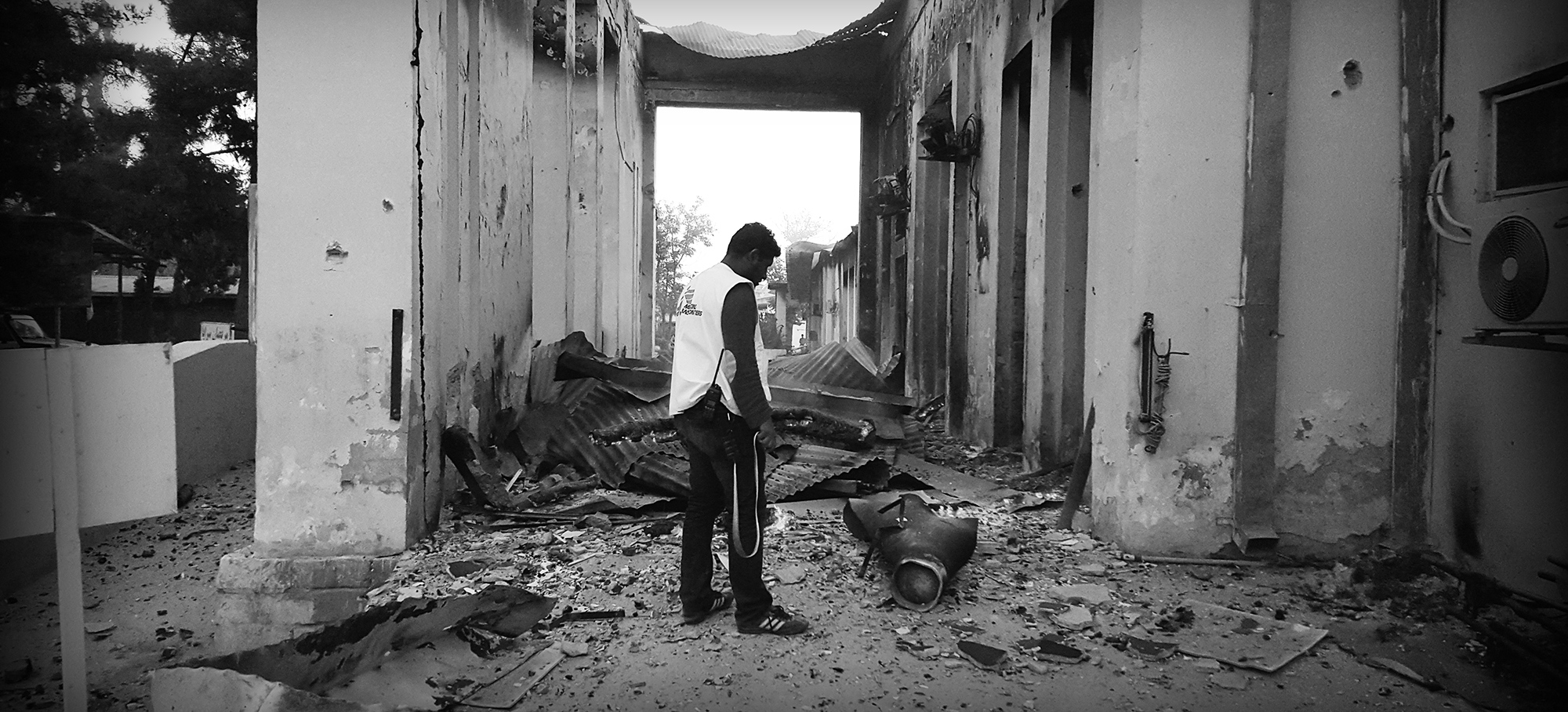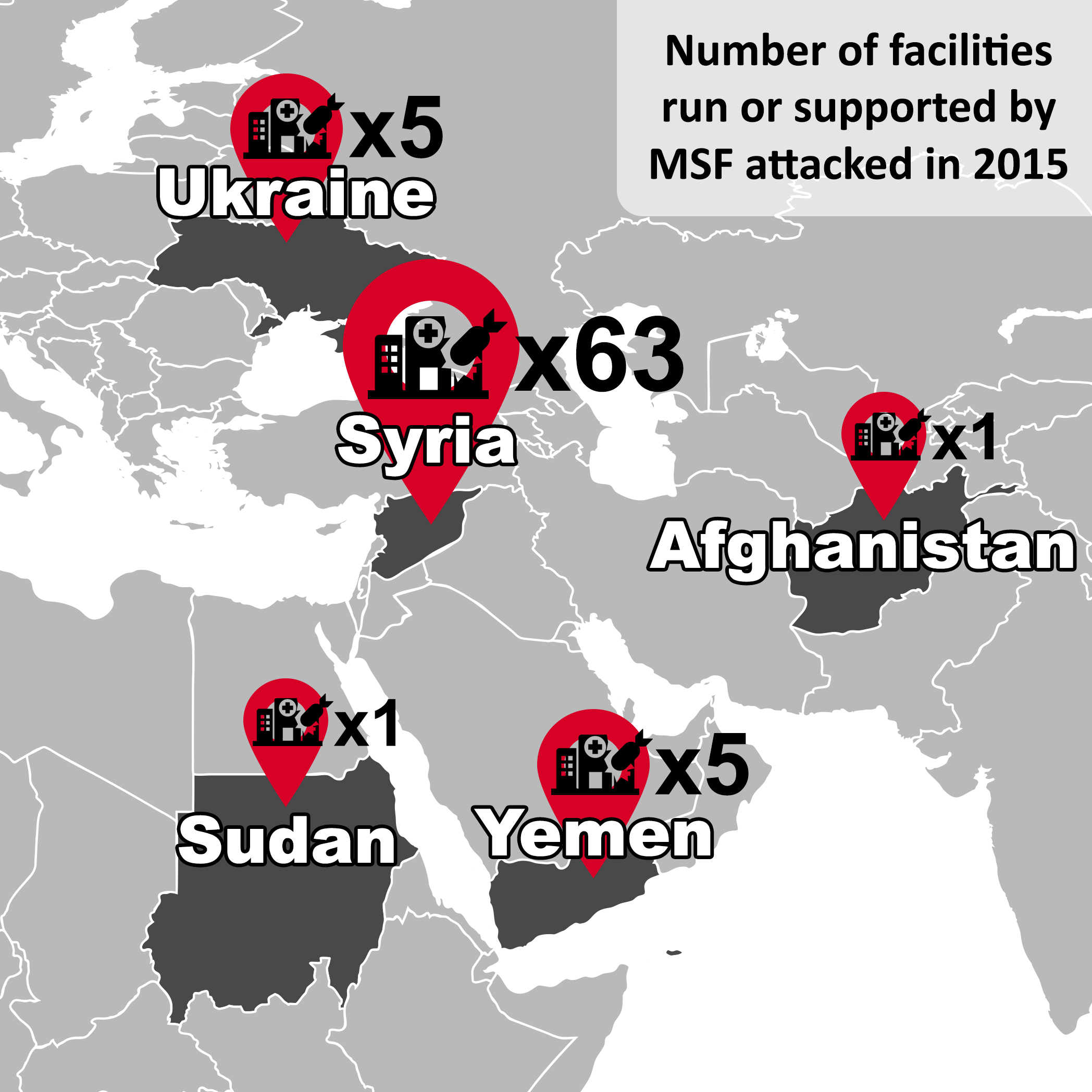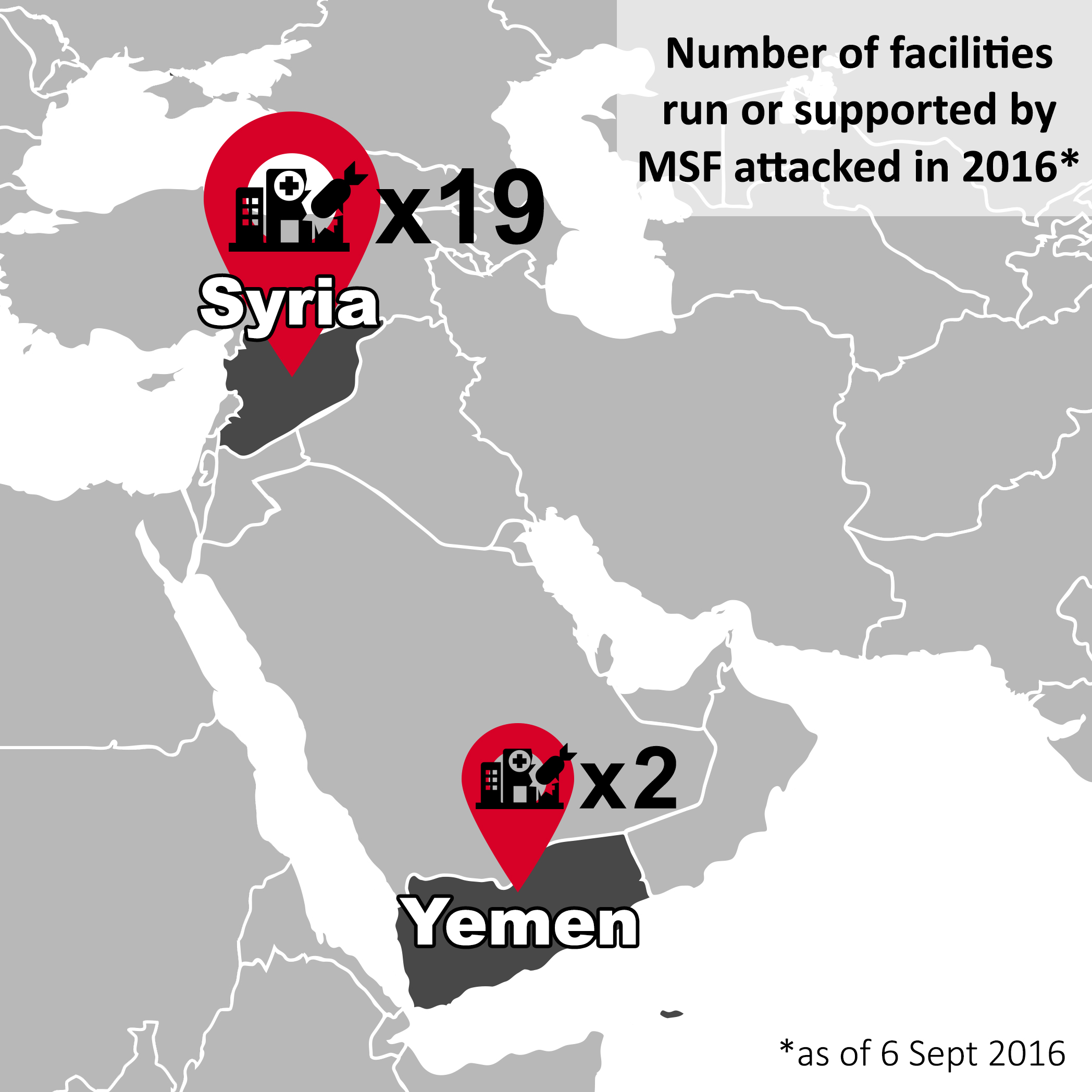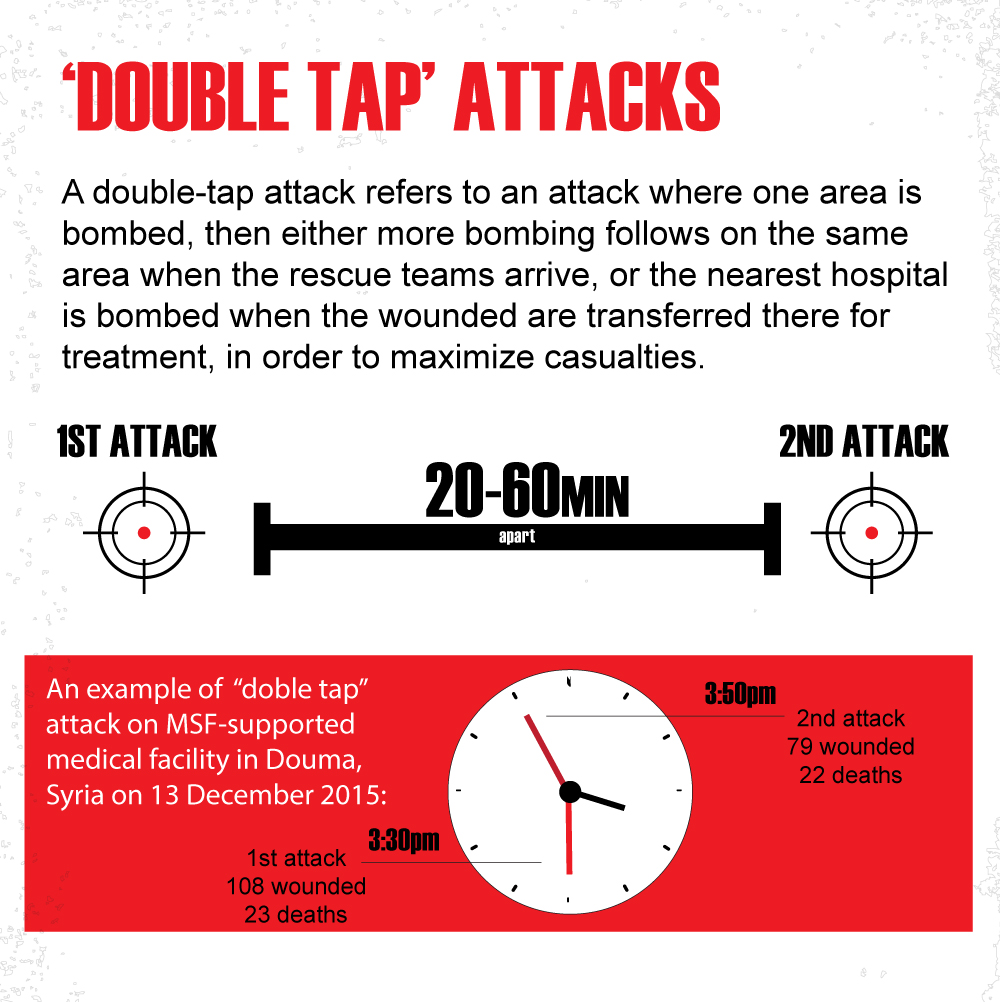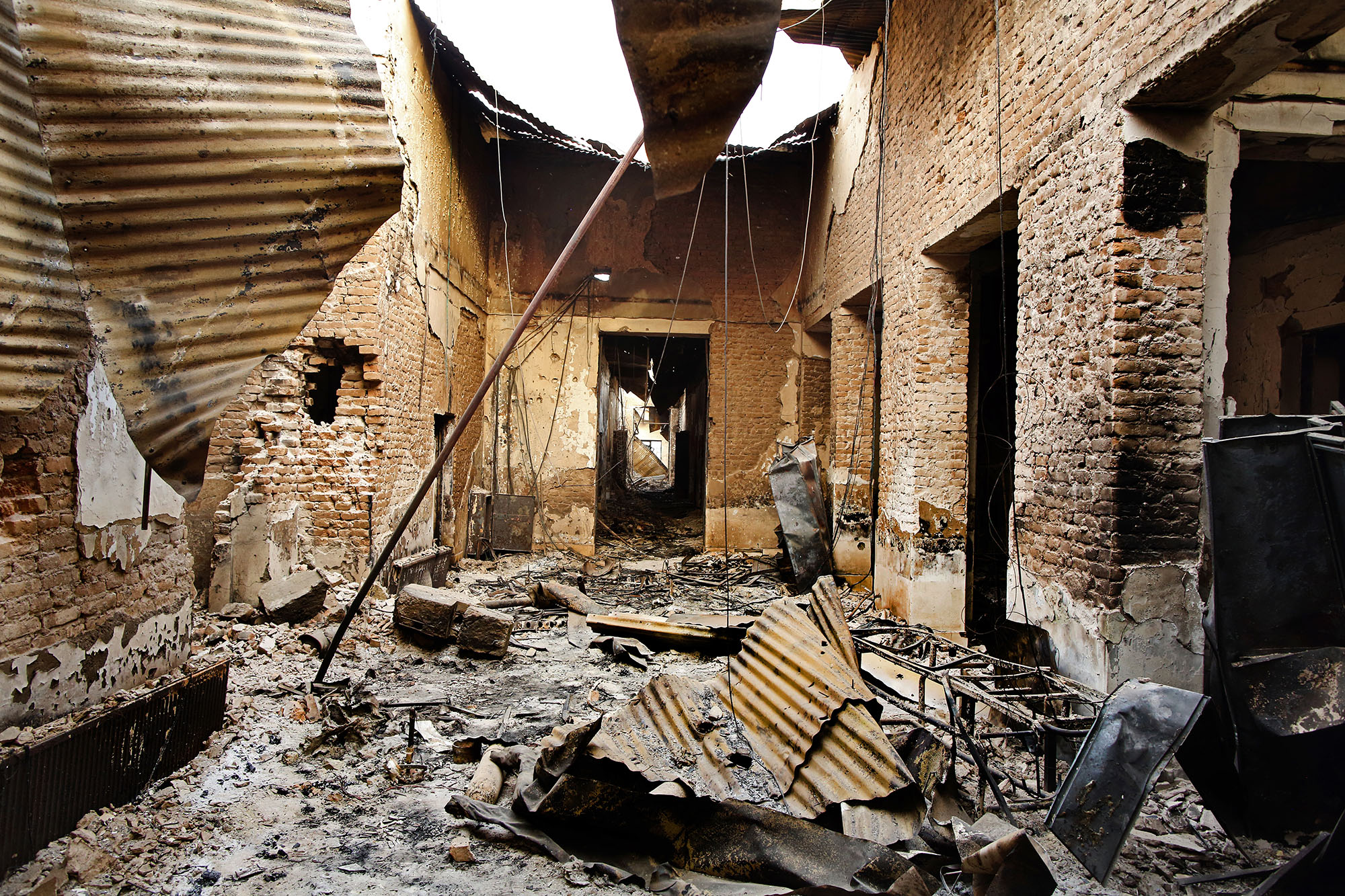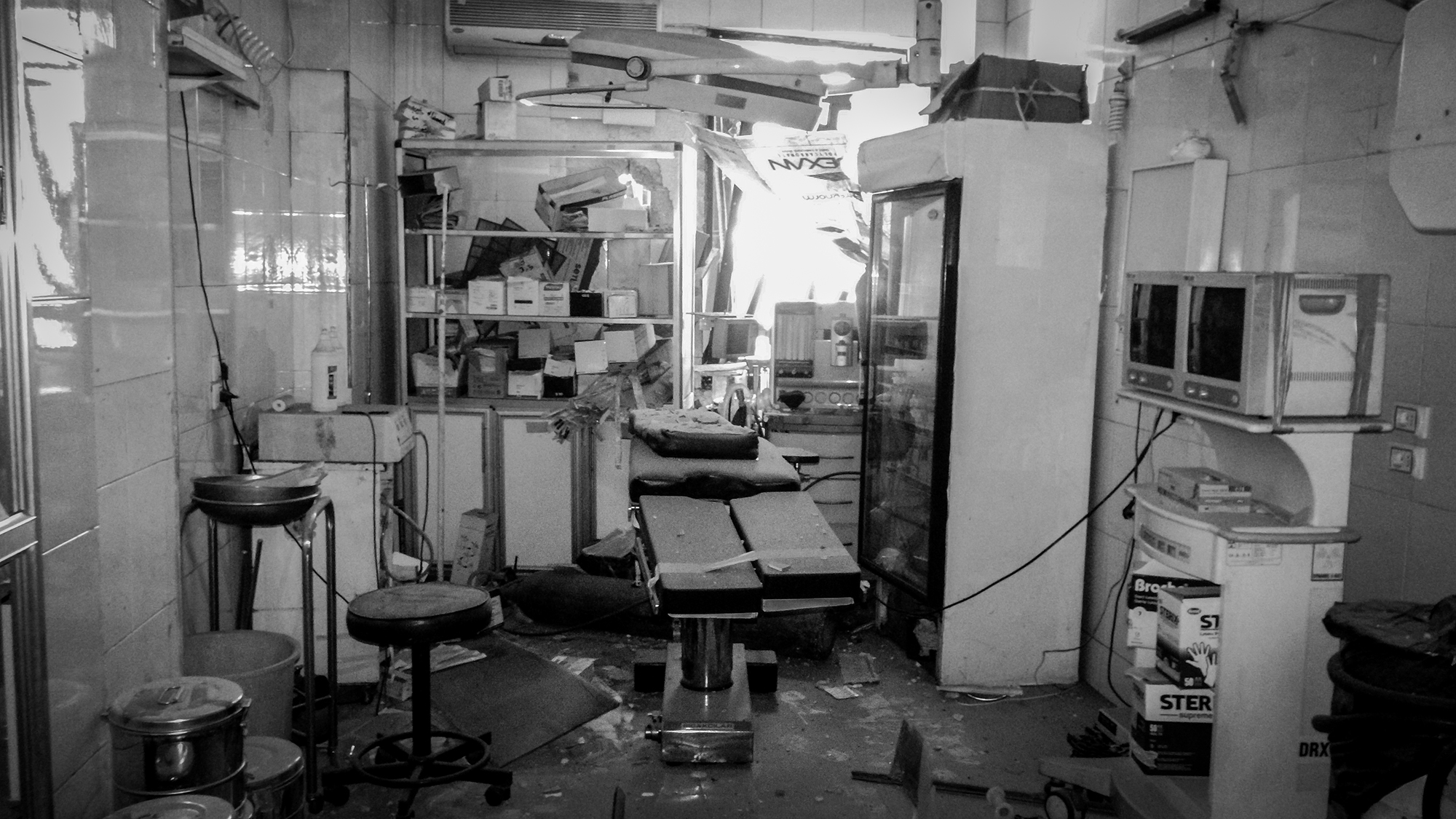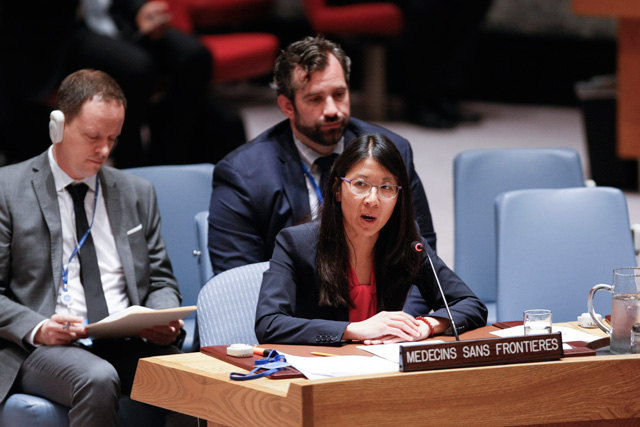Syria
06 Sep 2016
MSF-supported Al Zahraa Hospital, Aleppo
AAl Zahraa hospital has been damaged by an airstrike. The medical facility was hit on Tuesday evening (Sep 6) and had to stop activities after doors, windows and an electricity generator were destroyed. Fortunately, there were no human losses. Al Zahraa (14 bed) is one of the remaining functionning hospitals in besieged East Aleppo, where 250,000 people are trapped.
Learn More14 Aug 2016
MSF-supported Al Zarzour hospital, Aleppo
Damaged. Al Zarzour is one of the remaining functionning hospitals in besieged East Aleppo, where 250,000 people are trapped.
14 Aug 2016
MSF-supported Al Quds hospital, Aleppo
Damaged shortly after receiving MSF shipment of medical supplies. Al Quds is one of the remaining functionning hospitals in besieged East Aleppo, where 250,000 people are trapped.
13 Aug 2016
MSF-supported Al Bayan Hospital, Aleppo
Damaged. Medical supply room destroyed. Al Bayan (trauma, 16 beds) is one of the remaining functionning hospitals in besieged East Aleppo, where 250,000 people are trapped.
06 Aug 2016
MSF-suported hospital in Millis, Idlib Governorate
Aerial bombings destroyed most of the hospital building, inc. the operating theatre, ICU, paediatric department and around 80% of the medical devices, ambulances and the generator. 4 hospital staff and 9 others – including 5 children and 2 women – were killed in the two aerial strikes that hit the hospital directly, and the two strikes that hit the immediate vicinity of the hospital at around 2pm local time. 6 other hospital staff were wounded. Known as a reference centre specialising in paediatrics, the hospital provided essential care for around 70,000 people living in Millis and the area (emergency care/consultations for around 250 patients per day)
Learn More06 Aug 2016
MSF-supported M2, Aleppo
Damaged. M2 (64 bed, general inc. surgery) is one of the remaining functioning hospitals in besieged East Aleppo, where 250,000 people are trapped.
06 Aug 2016
MSF-supported Al Bayan Hospital, Aleppo
Damaged. Al Bayan (trauma, 16 beds) is one of the remaining functioning hospitals in besieged East Aleppo, where 250,000 people are trapped.
04 Aug 2016
MSF-supported M10, Aleppo
Damaged. M10 (trauma center with general surgery, 31 beds) is one of the remaining functioning hospitals in besieged East Aleppo, where 250,000 people are trapped.
03 Aug 2016
MSF-supported M2, Aleppo
Damaged. M2 (64 bed, general inc. surgery) is one of the remaining functioning hospitals in besieged East Aleppo, where 250,000 people are trapped.
31 Jul 2016
MSF-supported Al-Redwan hospital in Jasim, Daara Province
6 people were killed, including 2 women, 2 children, a pharmacist & an administrator. Al-Redwan hospital was the only functional public hospital in Jasim town, a city of 65,000 people. The hospital offered services including an Emergency Room, obstetric & neonatal care, outpatient & inpatient departments and 3 operating theatres. The hospital performed over 140 surgeries in June. 27 doctors, 15 medical technicians, 30 nurses & 3 midwives worked there.
23 Jul 2016
MSF-supported Al Hakim / Paediatrics, Aleppo
Damaged, including Paediatric ICU. Al Hakim / paediatrics (24 beds, 12 incubators - paeditrics, neonatal) is one of the remaining functioning hospitals in besieged East Aleppo, where 250,000 people are trapped.
Learn More
23 Jul 2016
MSF-supported Al Zahraa Hospital, Aleppo
One operation theater out of order following the attack. Al Zahraa (14 bed) is one of the remaining functioning hospitals in besieged east Aleppo, where 250,000 people are trapped.
Learn More
23 Jul 2016
MSF-supported Al Daqaq Hospital, Aleppo
Damaged, including operations theater and emergency room. Only emergency services currently running. Al Daqaq (14 bed) is one of the remaining functioning hospitals in besieged east Aleppo, where 250,000 people are trapped.
Learn More
23 Jul 2016
MSF-supported Al Bayan Hospital, Aleppo
Damaged. Medical supply room destroyed. Al Bayan is one of the remaining functioning hospitals (trauma, 16 beds) in besieged East Aleppo, where 250,000 people are trapped.
Learn More
19 Jul 2016
MSF-supported M10, Aleppo
Damaged. M10 (trauma center with general surgery, 31 beds) is one of the remaining functioning hospitals in besieged East Aleppo, where 250,000 people are trapped.
Learn More
16 Jul 2016
MSF-supported M2, Aleppo
Damaged. M2 (64 bed, general inc. surgery) is one of the remaining functioning hospitals in besieged East Aleppo, where 250,000 people are trapped.
Learn More
16 Jun 2016
MSF-supported Omar Bin Abdulaziz hospital, Aleppo
The 64-bed hospital has been affected by airstrikes, it's still not clear whether the hospital was directly hit or targeted. The hospital is one of the biggest in Aleppo. Thankfully there don't appear to be any casualties.
08 Jun 2016
MSF-supported Bayan hospital, Aleppo
Airstrikes in the neighbourhood of the Bayan hospital, included at least one strike right in front of the hospital. In total 15 dead and 20 injuries were reported to have resulted from the strikes in the area. Some of those who died were patients from inside the hospital. Some of the wounded, including patients already in the hospital were transferred to other hospitals, many in critical condition. The ER, the operations theatre, the pharmacy, the doctors living quarters, and the X-ray room and a drugs warehouse behind the hospital, have been reported to have been affected.
03 Jun 2016
MSF-supported Al Zarzour hospital, Aleppo
Airstrikes in the neighbourhood of the Al Zarzour hospital hit a building used as a medical warehouse by the hospital, leading to the loss of much needed treatments.
27 Apr 2016
MSF-supported Al Quds hospital, Aleppo
The airstrikes hit buildings neighboring the hospital, then the hospital itself as the wounded were transferred there. The death toll is over 55, including 6 staff (one of the last pediatricians in the city, a dentist, two nurses, a technician, and a guard). Al Quds was the main pediatric referral hospital in Aleppo.
Learn More
1st week of April 2016
2 MSF-supported field hospitals, East Ghouta
The two MSF-supported field hospitals, a nearby school and inhabited buildings in besieged East Ghouta suburbs were bombed, leading to at least 38 killed and 87 wounded, of whom 5 wounded medical staff.
Learn More
15 Feb 2016
MSF-supported hospital, Ma’arat Al Numan in Idlib province
The hospital was hit by four missiles in two attacks within a few minutes of each other. A total of 25 people killed (9 staff and 16 people incl. patients, caretakers and visitors, one of whom was a child), with 11 people wounded (incl. 10 staff).
Learn More
05 Feb 2016
MSF-supported Tafas field hospital, Dara’a governorate
Hit by airstrikes. 3 people killed and at least 6 wounded, including a nurse.
Learn More
02 Feb 2016
MSF-supported Maskan Emergency Health Centre, Azaz District, Aleppo Province
Hit by aerial attacks and artillery shelling. First barrel bombs landed around the hospital; so they had time to evacuate; then the hospital was hit directly, the full extent of the damage is not known.
27 Jan 2016
MSF-supported hospital, Jebel Saman District, Aleppo Province
Two rockets hit the building, followed by an attack with cluster bombs. One person killed (medical nurse) and 6 people injured. The hospital reported heavy damage, and is completely out of service now.
4/ 10/ 16 Jan 2016
MSF-supported hospital, Jebel Saman District , Aleppo Province
Hit by airstrikes using barrel bombs. The hospital has sustained significant damage and is currently not operational. It had also previously been hit in 2015.
2/ 4 Jan 2016
MSF-supported hospital, Hama governorate
Hit by aerial bombings, causing slight damage. No wounded or killed.

